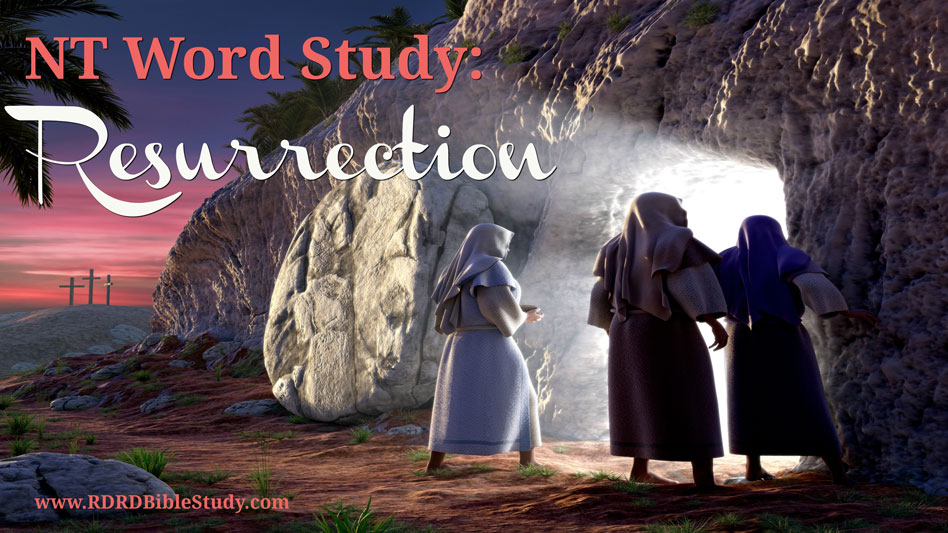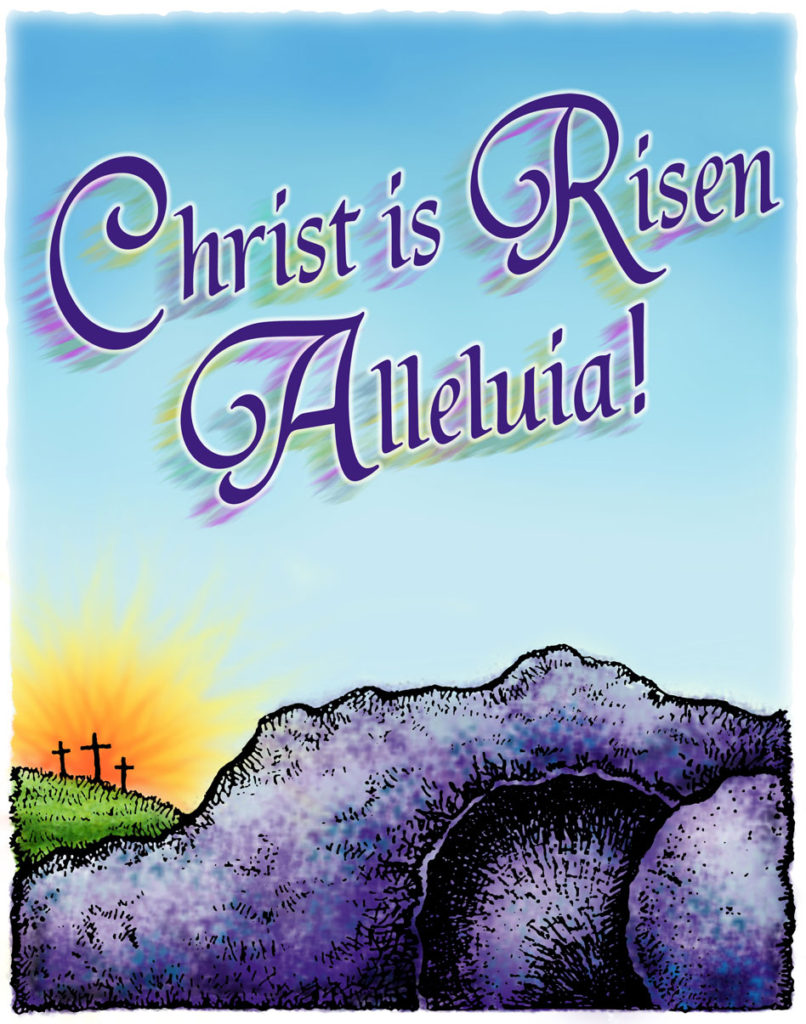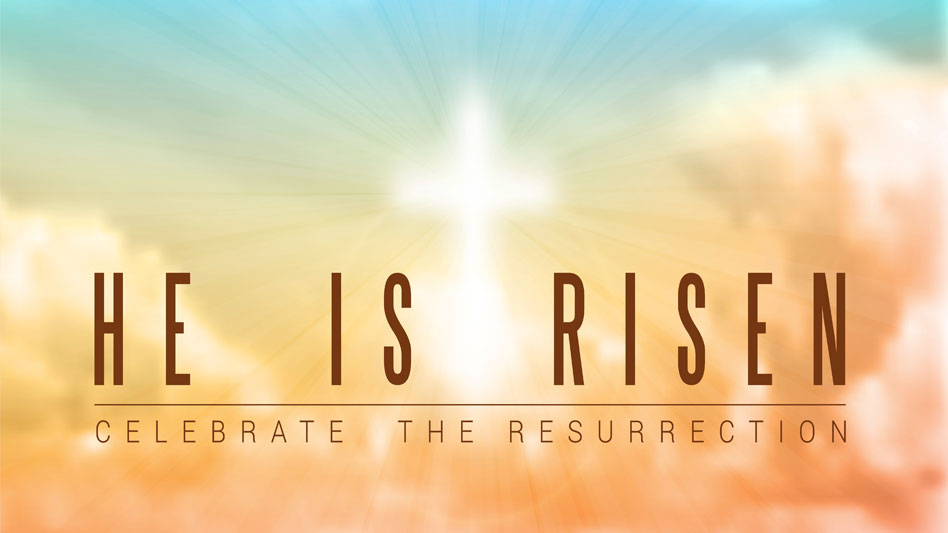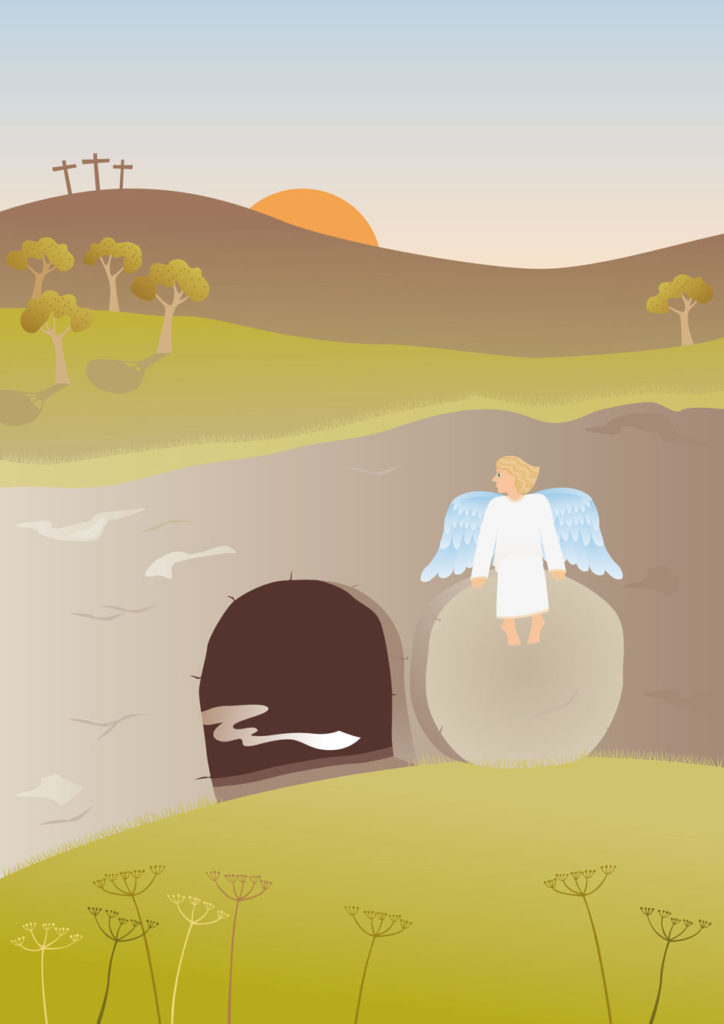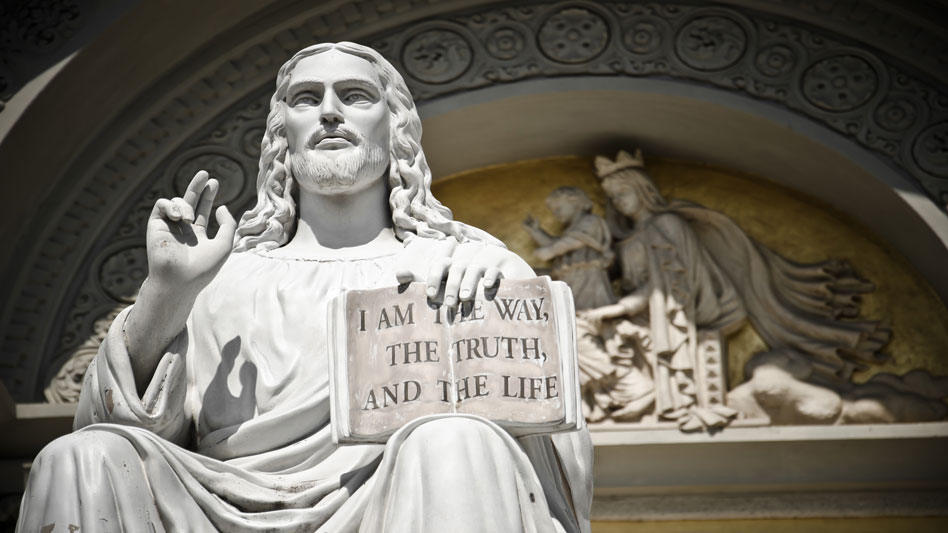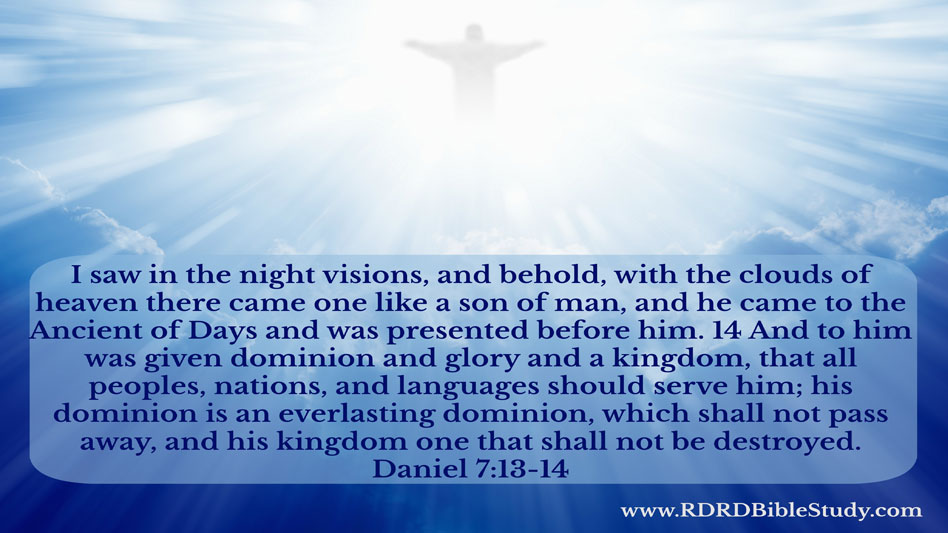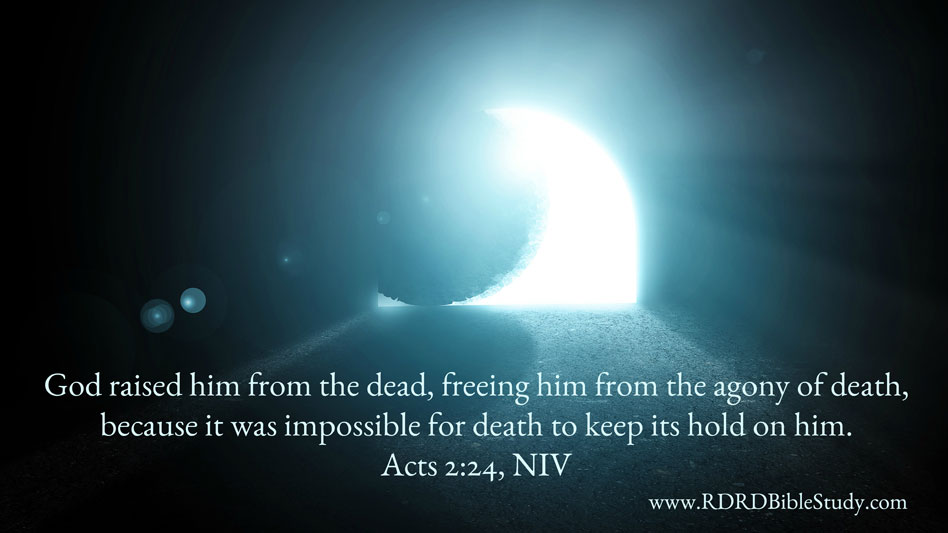Word: Resurrection
What Greek word is used to translate “resurrection”?
“Resurrection” is from the Greek feminine noun áνáστασις (pronounced an-á-sta-sis, emphasis on second syllable, all letter a’s sound like the “a” in father). The noun appears 40 times in the NT, occurring twice in one verse.
áνáστασις
Word Meaning:
- BDAG – resurrection from the dead
- Liddell-Scott – rising up; a rising again, resurrection
- Louw-Nida – to come back to life after having once died; to come back to life, to live again, to be resurrected, resurrection
- Thayer – a raising up, rising (e. g. from a seat); a rising from the dead.
- Friberg – 1) intransitively, of coming back to life after having died, arising (Matt. 22:23); 2) by metonymy, of Jesus as the author of resurrection (John 11:25); and 3) figuratively, as advancing to a higher status, rising (Luke 2:34).
Compound Word
áνáστασις is a Greek compound word: áνá + στασις
áνá – 1) a preposition with the accusative case (indicating direction or focus) meaning “up, upwards, up to;”
2) with numerals – each;
3) as a prefix to verbs – up, back, again;
4) used with μέρος – among, in the middle, between.
στασις –
- BDAG – 1) condition of being in a certain position or state of affairs, existence, occurrence; Stability was a dominant concern in administration of a state. If the focus is on the process leading up to establishment of a position, change is a dominant component, hence
2) movement toward a (new) state of affairs, uprising, riot, revolt, rebellion;
3) lack of agreement respecting policy, strife, discord, disunion - Louw-Nida – to rise up in open defiance of authority, with the presumed intention to overthrow it or to act in complete opposition to its demands; to rebel against, to revolt, to engage in insurrection, rebellion
- Friberg – from a basic meaning standing;
1) as the continuance of an old order unchanged existence; literally have standing, i.e. be in existence, be standing (Heb. 9:8);
2) politically taking a stand, especially a rebellious insurrection, uprising, revolt (Luke 23:19, 25; probably Mark 15:7);
3) as civil strife that threatens political security, uproar (Acts 19:40; perhaps Mark 15:7);
4) as sharp dissension or unrest within a community strife, heated quarrel, conflict (Acts 15:2)
(Wow! This preaches!) Though a compound word is in and of itself a “word” with a particular meaning, researching the words that make up a compound word reveal any particular nuances.
The word στασις denoting revolt, uprising, rebellion reveals a deeper understanding of why Jesus’ resurrection is described as a victory over death, a putting away of the old order, etc.
Studying The Word In Context
When doing word studies in the original language:
1) the context of a passage guides the exact meaning of the word;
2) the meaning assists in a more precise interpretation of the passage begin studied.
For purposes of contextual use, John 5:28-29 will be used.
Scripture
Do not marvel at this, for an hour is coming when all who are in the tombs will hear his voice 29 and come out, those who have done good to the resurrection of life, and those who have done evil to the resurrection of judgment. John 5:28-29
Compare Translations Of John 5:28-29:
- ESV – Do not marvel at this, for an hour is coming when all who are in the tombs will hear his voice and come out, those who have done good to the resurrection of life, and those who have done evil to the resurrection of judgment.
- KJV – Marvel not at this: for the hour is coming, in the which all that are in the graves shall hear his voice, And shall come forth; they that have done good, unto the resurrection of life; and they that have done evil, unto the resurrection of damnation.
- NAS – Do not marvel at this; for an hour is coming, in which all who are in the tombs shall hear His voice, and shall come forth; those who did the good deeds to a resurrection of life, those who committed the evil deeds to a resurrection of judgment.
- NIV – Do not be amazed at this, for a time is coming when all who are in their graves will hear his voice and come out– those who have done good will rise to live, and those who have done evil will rise to be condemned.
- NRSV – Do not be astonished at this; for the hour is coming when all who are in their graves will hear his voice and will come out– those who have done good, to the resurrection of life, and those who have done evil, to the resurrection of condemnation.
- NLT – Don’t be so surprised! Indeed, the time is coming when all the dead in their graves will hear the voice of God’s Son, and they will rise again. Those who have done good will rise to experience eternal life, and those who have continued in evil will rise to experience judgment.
- The Message – “Don’t act so surprised at all this. The time is coming when everyone dead and buried will hear his voice. Those who have lived the right way will walk out into a resurrection Life; those who have lived the wrong way, into a resurrection Judgment
Any Major Differences?
The translation and interpretation of “resurrection” like the majority of nouns, is not disputed. Therefore, very little interpretational differences exist.
Variations stem from the theory of translation used by a particular Bible version.
NIV And NLT
In John 5:29, both the NIV and NLT chose to translate the noun “resurrection” as a future verb “will rise.”
NIV—“will rise to” live or be condemned
NLT—“will rise to experience” eternal life or judgment.
The NLT takes it further to stress that it is not rising for rising’s sake, but that the person will experience something after rising based on the life they lived on earth.
The translational philosophy of both the NIV and NLT seeks to make the Bible easier to understand. Whereas the NIV balanced transparency to the original with clear meaning, the NLT attempted to translate the texts simply and literally to convey the thoughts behind the text. The NLT states that part of the reason for this approach is the premise that more people will hear the Bible read aloud in a church service than are likely to read it or study it on their own.
When “resurrection” is the subject of a passage, such as 1 Corinthians 15, the NIV and NLT render the noun “resurrection.” When the subject is 1) Jesus having been resurrected, or 2) future believers will be resurrected, the noun is rendered “will rise” (accommodating the verbal form to fit the sentence grammatically).
“Resurrection” Attributes In John 5:29
The use of the noun in John 5:29 is
Gender: Feminine
Number: Singular
Case: Accusative
Range of Meaning
The range of meaning for the noun “resurrection” is included in Word Meaning above.
Does John Use This Word Anywhere Else?
Yes.
- John 11:24 Martha said to him, “I know that he will rise again in the resurrection on the last day.”
- John 11:25 Jesus said to her, “I am the resurrection and the life. Whoever believes in me, though he die, yet shall he live,
- Revelation 20:5 The rest of the dead did not come to life until the thousand years were ended. This is the first resurrection.
- Revelation 20:6 Blessed and holy is the one who shares in the first resurrection! Over such the second death has no power, but they will be priests of God and of Christ, and they will reign with him for a thousand years.
Is This Word Used Anywhere Else in the NT?
- Matthew 22:23, 28, 30-31 The same day Sadducees came to him, who say that there is no resurrection, and they asked him a question,
- 28 In the resurrection, therefore, of the seven, whose wife will she be? For they all had her.”
- 30 For in the resurrection they neither marry nor are given in marriage, but are like angels in heaven.
- 31 And as for the resurrection of the dead, have you not read what was said to you by God:
- Mark 12:18And Sadducees came to him, who say that there is no resurrection. And they asked him a question, saying,
- Mark 12:18 In the resurrection, when they rise again, whose wife will she be? For the seven had her as wife.”
- Luke 2:34 And Simeon blessed them and said to Mary his mother, “Behold, this child is appointed for the fall and rising of many in Israel, and for a sign that is opposed
- Luke 14:14 and you will be blessed, because they cannot repay you. You will be repaid at the resurrection of the just.”
- Luke 20:27 There came to him some Sadducees, those who deny that there is a resurrection,
- Luke 20:33 In the resurrection, therefore, whose wife will the woman be? For the seven had her as wife.”
- Luke 20:35-36 but those who are considered worthy to attain to that age and to the resurrection from the dead neither marry nor are given in marriage, 36 for they cannot die anymore, because they are equal to angels and are sons of God, being sons1 of the resurrection.
- Acts 1:22 beginning from the baptism of John until the day when he was taken up from us – one of these men must become with us a witness to his resurrection.”
- Acts 2:31 he foresaw and spoke about the resurrection of the Christ, that he was not abandoned to Hades, nor did his flesh see corruption.
- Acts 4:2 greatly annoyed because they were teaching the people and proclaiming in Jesus the resurrection from the dead.
- Acts 4:33 And with great power the apostles were giving their testimony to the resurrection of the Lord Jesus, and great grace was upon them all.
- Acts 17:18 Some of the Epicurean and Stoic philosophers also conversed with him. And some said, “What does this babbler wish to say?” Others said, “He seems to be a preacher of foreign divinities” – because he was preaching Jesus and the resurrection.
- Acts 17:32 Now when they heard of the resurrection of the dead, some mocked. But others said, “We will hear you again about this.”
- Acts 23:6 Now when Paul perceived that one part were Sadducees and the other Pharisees, he cried out in the council, “Brothers, I am a Pharisee, a son of Pharisees. It is with respect to the hope and the resurrection of the dead that I am on trial.”
- Acts 23:8 For the Sadducees say that there is no resurrection, nor angel, nor spirit, but the Pharisees acknowledge them all.
- Acts 24:15 having a hope in God, which these men themselves accept, that there will be a resurrection of both the just and the unjust.
- Acts 24:21 other than this one thing that I cried out while standing among them: ‘It is with respect to the resurrection of the dead that I am on trial before you this day.'”
- Act 26:23 that the Christ must suffer and that, by being the first to rise from the dead, he would proclaim light both to our people and to the Gentiles.”
- Romans 1:4 and was declared to be the Son of God in power according to the Spirit of holiness by his resurrection from the dead, Jesus Christ our Lord,
- Romans 6:5 For if we have been united with him in a death like his, we shall certainly be united with him in a resurrection like his.
- 1 Corinthians 15:12-13 Now if Christ is proclaimed as raised from the dead, how can some of you say that there is no resurrection of the dead? 13 But if there is no resurrection of the dead, then not even Christ has been raised.
- 1 Corinthians 15:21 For as by a man came death, by a man has come also the resurrection of the dead.
- 1 Corinthians 15:42 So is it with the resurrection of the dead. What is sown is perishable; what is raised is imperishable.
- Philippians 3:10 that I may know him and the power of his resurrection, and may share his sufferings, becoming like him in his death,
- 2 Timothy 2:18 who have swerved from the truth, saying that the resurrection has already happened. They are upsetting the faith of some.
- Hebrews 6:2 and of instruction about washings,1 the laying on of hands, the resurrection of the dead, and eternal judgment.
- Hebrews 11:35 Women received back their dead by resurrection. Some were tortured, refusing to accept release, so that they might rise again to a better life.
- 1 Peter 1:3 Blessed be the God and Father of our Lord Jesus Christ! According to his great mercy, he has caused us to be born again to a living hope through the resurrection of Jesus Christ from the dead,
- 1 Peter 3:21 Baptism, which corresponds to this, now saves you, not as a removal of dirt from the body but as an appeal to God for a good conscience, through the resurrection of Jesus Christ.
Cognates
Cognates are words from the same original word or root. Textures and layers conveyed by the meaning and use of cognates can provide a more insightful analysis of the word. Though it does not alter the meaning of the original study word, it does expand understanding of it (in multiple ways; not all situations are the same). Resist any temptation to force a cognate’s meaning to the word under study.
The Greek verb áνáστασις has the following cognate verbs:
| VERB | TRANSLITERATION |
|
áνíστημι
|
ánístami |
|
áναστατóω
|
ánastatóo |
As can be seen, each of the verbs derive from the similar roots anista- and anasta.
Cognates’ Meaning and Examples of Scripture Use
áνíστημι – to come back to life from the dead, rise up, come back from the dead
- Mark 9:10 So they kept the matter to themselves, questioning what this rising from the dead might mean.
- John 11:23 Jesus said to Martha, “Your brother will rise again.”
- 1 Thessalonians 4:16 For the Lord himself will descend from heaven with a cry of command, with the voice of an archangel, and with the sound of the trumpet of God. And the dead in Christ will rise first.
This verb is used 107 times in the Greek New Testament. Only 7 of the occurrences are located outside of the Gospels and Acts.
BDAG lists 10 different nuances of the verb. Scriptures cited above are passages where the verb means “to come back to life from the dead, rise up, come back from the dead.”
áναστατóω – to upset the stability of a person or group, disturb, trouble, upset
- Acts 17:6 And when they could not find them, they dragged Jason and some of the brothers before the city authorities, shouting, “These men who have turned the world upside down have come here also
- Acts 21:38 Are you not the Egyptian, then, who recently stirred up a revolt and led the four thousand men of the Assassins out into the wilderness?”
- Galatians 5:12 I wish those who unsettle you would emasculate themselves!
LXX
áνáστασις is used 4 times in the Greek OT
- Psalm 66:1 <For the end, a Song of Psalm of resurrection.> Shout unto God, all the earth.
- Psalm 66:1 TO THE CHOIRMASTER. A SONG. A PSALM. Shout for joy to God, all the earth
*Note the LXX has “…a Psalm of Resurrection” which is not found in English translations; The Hebrew word “shout” is from a word meaning “raise a shout” which is the meaning the LXX translators tried to capture. - Zephaniah 3:8 “Therefore wait for me,” declares the LORD, “for the day when I rise up to seize the prey. For my decision is to gather nations, to assemble kingdoms, to pour out upon them my indignation, all my burning anger; for in the fire of my jealousy all the earth shall be consumed.
- Lamentations 3:63 Behold their sitting and their rising; I am the object of their taunts.
- Daniel 11:20 “Then shall arise in his place one who shall send an exactor of tribute for the glory of the kingdom. But within a few days he shall be broken, neither in anger nor in battle.
*Note “glory” as in rising up.
None of the LXX uses have the meaning “rise from the dead.” The Greek word had not yet been associated with the meaning “rise from the dead.”
Intertestament
But by the time of 2 Maccabees, which was written in koiné Greek around 124 BC, áνáστασις is used to mean “resurrection, rise from the dead”:
- 2 Maccabees 7:14 When he was near death, he said, “One cannot but choose to die at the hands of mortals and to cherish the hope God gives of being raised again by him. But for you there will be no resurrection to life!”
- 2 Maccabees 12:43 He also took up a collection, man by man, to the amount of two thousand drachmas of silver, and sent it to Jerusalem to provide for a sin offering. In doing this he acted very well and honorably, taking account of the resurrection.
Note About Doing Word Studies
In the normal course of bible study, a word is not studied in isolation. Normally additional words from the passage under study will also need “word studies” done to fully interpret the meaning of a passage. The purpose of this post is to do a word study on the noun “resurrection.”
The purpose of the upcoming section is to take the information gathered about “resurrection” and study it in the context of John 5:28-29. This demonstrates how studying the Greek word translated “resurrection” helps to interpret, and subsequently to understand, what John wants his audience to hear.
Though lots more could be studied and researched and said, the following will use the information gathered for the noun “resurrection” and apply it to the study passage.
And Another Note…
all of this is before looking at a commentary.
How Does The Word Study Help In Understanding the Use of “Resurrection” in John 5:28-29?
Context first.
Historical Context
Internal evidence suggests that John the apostle, ‘the disciple whom Jesus loved” is the writer of the Gospel of John. The Gospel was probably written in Ephesus and intended for a universal readership. The original audience likely consisted of a Christian community made up of both diaspora Jews and converts to Christianity.
John states the purpose for writing toward the end of the book:
Now Jesus did many other signs in the presence of the disciples, which are not written in this book; 31 but these are written so that you may believe that Jesus is the Christ, the Son of God, and that by believing you may have life in his name. John 20:30-31
This statement indicates that John wrote with an evangelistic purpose. John stresses his role as an eyewitness to the signs, i.e. miracles, that Jesus did in the sight of His disciples.
The most likely occasion for writing is the destruction of the Jerusalem temple in AD 70. Such a traumatic event would have left Judaism in a national and religious void. John presents Jesus as the temple’s replacement (John 2:18-22) and the fulfillment of the symbolism in Jewish feasts (chapters 5-12). If this premise is correct, the Gospel of John could have been written any time after AD 70, but prior to AD 82 when the Triumphal Arch of Titus showing the “Spoils of Jerusalem” was erected in Rome.
Literary Context
First century Gospel.
John 1:1-18, the Gospel’s prologue, places the entire Gospel into the framework of the eternal, pre-existent Word who “became flesh and dwelled among us (v. 14).
After the prologue, the Gospel is divided into two distinct parts, sometimes referred to as “The Book of Signs” (1-12) and “The Book of Glory” (13-20).
The Book of Signs sets forth evidence for Jesus’ messiahship by way of seven selected signs. (1:19-12:50). The signs’ extended meanings demonstrate Jesus’ messianic impact on Judaism as they are cast in a topical arrangement of the Jewish institutions (chs. 2-4) and festivals (chs. 5-10).
The Book of Glory shows how Christ secures the continuation of His mission by preparing the church for its mission—His washing of the disciples’ feet, farewell discourse, promise of the Holy Spirit, high priestly prayer, and ultimately His death, resurrection, and return to God.
The Resurrection appearances and the commissioning of the disciples by their risen Lord are the focal point of chapter 20 where Jesus is the paradigm for the “sent one.” And now Jesus has become the sender of His new messianic community (20:21-23).
The major motifs of the Gospel—the signs, believing, eternal life, and the identity of Jesus as Christ and Son of God—are reiterated in the purpose statement of John 20:30-31.
The final two verses of the book, explicitly authenticate John’s eyewitness testimony to what he has written.
This is the disciple who is bearing witness about these things, and who has written these things, and we know that his testimony is true. 25 Now there are also many other things that Jesus did. Were every one of them to be written, I suppose that the world itself could not contain the books that would be written. John 21:24-25
John’s purpose statement and authentication of witness conveys to his hearers and readers that just as John himself was sent by Christ to proclaim the Gospel, likewise they too are being sent to proclaim the Gospel message to unbelievers.
John 5 Context
Sabbath Background
Chapter 5 begins a new section within the Book of Signs (1-12) which shows Jesus’ messianic impact on some of the major festivals of Judaism. A Sabbath Festival in Jerusalem is the background of chapter 5.
If you think about the Sabbath, immediately John 5 takes on new levels of understanding. Each covenant has a sign, and the Sabbath was given as the sign of the Mosaic Covenant. A day of rest, when no work should be done.
The Sabbath is the only weekly festival observed in homes and synagogues. Its “day of solemn rest” set the tone of reverence and devotion for any festival, therefore the onset of festivals mimicked the observance of the Sabbath. For instance, the first day of Passover (Lev. 23:7) was a sacred assembly in which no work could be done.
The Sabbath is referred to extensively in the Torah. For purposes here, let’s look at two prominent places.
In Exodus 20, the Sabbath is the fifth commandment in the 10 commandments:
“Remember the Sabbath day, to keep it holy. 9 Six days you shall labor, and do all your work, 10 but the seventh day is a Sabbath to the LORD your God. On it you shall not do any work, you, or your son, or your daughter, your male servant, or your female servant, or your livestock, or the sojourner who is within your gates. 11 For in six days the LORD made heaven and earth, the sea, and all that is in them, and rested the seventh day. Therefore the LORD blessed the Sabbath day and made it holy. Exodus 20:8-11
In Exodus 31, it is the last instruction that God gives to Moses, before he descends with the tablets (and encounters the golden calf incident).
You shall keep the Sabbath, because it is holy for you. Everyone who profanes it shall be put to death. Whoever does any work on it, that soul shall be cut off from among his people. 15 Six days shall work be done, but the seventh day is a Sabbath of solemn rest, holy to the LORD. Whoever does any work on the Sabbath day shall be put to death. 16 Therefore the people of Israel shall keep the Sabbath, observing the Sabbath throughout their generations, as a covenant forever. 17 It is a sign forever between me and the people of Israel that in six days the LORD made heaven and earth, and on the seventh day he rested and was refreshed.'” Exodus 31:14-17
The Sabbath is a holy day and finds its symbolic framework placed in God’s work in Creation. Anyone who does not keep the Sabbath, “whoever does any work,” receives the sentence of death. “Work” will be a keyword in John 5 (and throughout the book).
The Healing Of The Man At The Pool Of Bethesda
(5:1-8) Chapter 5 begins with Jesus’ third sign, the healing of a man who had been an invalid for 38 years. After Jesus speaks with the man, the healing event is as follows:
Jesus said to him, “Get up, take up your bed, and walk.” 9 And at once the man was healed, and he took up his bed and walked. Now that day was the Sabbath. John 5:8-9
(5:9-18) But the Jews quickly intervene when they see the man: “Hey! It’s the Sabbath. It’s not lawful for you to take up your bed” (5:10). Mosaic Law did not forbid taking up one’s bed, but the Rabbinic interpretations of the Law did.
Eventually, the Jews discover that Jesus had told the man to take up his bed and walk. Not only that, Jesus had healed him. Since the healing took place on the Sabbath, it becomes the triggering event for the conflict with the Jews that will dominate the rest of John’s Gospel.
At this point, the Jewish opponents begin their persecution and harassment of Jesus because He has violated the Sabbath. Remember the Mosaic law, “whoever does any work on the Sabbath…”
To add fuel to the flames, Jesus answered their accusations:
But Jesus answered them, “My Father is working until now, and I am working.” John 5:17
Not only has Jesus broken the law, now He is making divine claims of doing the same work that the Father does, making Himself equal with God.
This was why the Jews were seeking all the more to kill him, because not only was he breaking the Sabbath, but he was even calling God his own Father, making himself equal with God. John 5:18
From the Jews’ perspective, proper Sabbath behavior and piety were based on rabbinic expectations of such. But John, and obviously Jesus, have a different Sabbath understanding of the festivals that will play out time and again from here throughout chapter 12 (cf. Matt. 12:8; Mark 2:27). Festivals were established by God to bring good gifts to His people, not to enforce laws governing behavior.
(5:19-47) In the last half of the chapter Jesus continues to answer the challenge of His Jewish opponents by explaining who He is and what He does:
“Truly, truly, I say to you, the Son can do nothing of his own accord, but only what he sees the Father doing.” John 5:19
Throughout John 5:19-30, Jesus describes His connection to the Father.
(5:19-24) In v. 19, He only does what He sees the Father doing. The Father loves the Son and will show Him even more things. Jesus’ works, therefore, derive their purpose from His Father’s will.
Because of the Father’s love, two tasks are entrusted to the Son that belong exclusively to the Father. Sovereignty over life (v. 21) and judgment (v. 22). The Jewish Scriptures bear witness to God’s power over life and the ability to raise people from the dead. But that Jesus can do it sets him apart in Judaism with the likes of Elijah and Elisha. But unlike them, Jesus’ giving of life has also to do with judgment.
Judgment is not an event left solely for the end times. Both judgment and the gift of life are gifts in the here and now (recall the Sabbath and the festivals are gifts from God as well).
Jesus is the one sent into the world by the Father who has given Him authority and power to carry out His works. Therefore, whoever does not honor the Son, does not honor the Father who sent Him (v.23).
In v. 24 Jesus interprets what life and judgment really mean. To hear the words of Jesus (accept Him and His message) is to believe God who sent Him. The decision one makes here has present consequences. For those who believe eternal life begins immediately. Likewise, condemnation and death disappear immediately.
(5:25-29) Jesus’ work as life-giver and judge also has future implications (v. 25, 28-29). Jesus will be God’s instrument on the great Day of Judgment, because He is the Son of Man (v. 27; cf. Dan. 7:13-14).
Throughout these verses Jesus has been expanding His divine claim. His authority over the Sabbath leads now to authority over eternal life. If it is true that His identity as God’s Son permits Him to assume authority on the Sabbath, then He can assume divine authority elsewhere. All of the tasks in 5:24-29 are OT works of God. Life is a gift of God. Judgment is a work of God. Because of who He is, Jesus can do what God does.
Though the Jews accuse Jesus, putting Him on trial so to speak, Jesus explains that He has been sent from God, calling Himself the Son of Man, the divine figure of the same name from Daniel, a point not lost on the chief priests and officials.
Jesus explicitly claims the divine role of life-giver which recalls both Creation and God’s miraculous works in the Hebrews’ history. His claim of being given the authority to judge all people implicitly calls out the Jews for judging Him.
(5:30-47) Jesus lists a litany of witnesses to who He is: God Himself, John the Baptist, Jesus’ works, Scripture, and Moses all bear witness (vv. 30-40). The Jewish opponents search the Scriptures for eternal life and do not believe the One whom the Father has sent (vv. 41-44). Even though the temple leaders stand in judgment, Jesus will not accuse them. Because Moses, on whom they have set their hope, will accuse them. Because Moses spoke about Jesus, Moses speaks condemnation to them (vv. 45-57).
Scripture – John 5:28-29
In context, the passage under study falls within the section where Jesus is discussing resurrection at the end times.
Jesus has claimed God-given authority over life and judgment which begins now but also carries into the future. Life and judgment in the now leads to eternal life and the Day of Judgment in the future.
Jesus has God’s authority to give life and to judge. V. 24 says those who believe now have crossed from death to life. Vv. 28-29 speaks of an end time judgment, when those in the tombs will hear His voice (are these Peter’s spirits in prison in 1 Peter 3:19?) and experience resurrection—that is “they will come back to life after having once died,” “come back to life,” “live again”—either a resurrection of judgment or a resurrection of life, both realms under Jesus’ authority.
Passages With Similar Themes In the NT
Matthew 25:31-46 – Judgment of the Nations/Separation of the Sheep and Goats
Matthew 25 14:30 describes a master going on a journey who entrusts his property to his servants until He returns. Based on the servants’ stewardship of the Master’s property, the Master either rewards the servants or cast them into darkness. Clearly speaking of eschatological judgment, Jesus continues with the Judgment of the nations. Verse 31 begins with “when the Son of Man comes in His glory…” alluding to Daniel 7:13-14, just as John 5:27. God’s instrument in judgment gives life and executes judgment.
“When the Son of Man comes in his glory, and all the angels with him, then he will sit on his glorious throne. 32 Before him will be gathered all the nations, and he will separate people one from another as a shepherd separates the sheep from the goats. 33 And he will place the sheep on his right, but the goats on the left. 34 Then the King will say to those on his right, ‘Come, you who are blessed by my Father, inherit the kingdom prepared for you from the foundation of the world. 35 For I was hungry and you gave me food…, 41 “Then he will say to those on his left, ‘Depart from me, you cursed, into the eternal fire prepared for the devil and his angels. 42 For I was hungry and you gave me no food…, 46 And these will go away into eternal punishment, but the righteous into eternal life.” (Matt. 25:31-35, 41-42, 46).
Revelation 20:6, 11-15 – Millennial Reign and Great White Throne Judgment
Prior to the Millennial Reign of Christ, the first resurrection is described. Those who share in the first resurrection should rejoice because the second death has no power over them. Then comes the great white throne judgment and Him who is seated on it. And the dead are standing before the throne, and books opened, including the book of Life, clearly alluding to the Day of Judgment. Each of the dead are judged, and if their names are not written in the Book of Life, they are thrown in the lake of fire, the second death.
Blessed and holy is the one who shares in the first resurrection! Over such the second death has no power, but they will be priests of God and of Christ, and they will reign with him for a thousand years. Revelation 20:6
Then I saw a great white throne and him who was seated on it. From his presence earth and sky fled away, and no place was found for them. 12 And I saw the dead, great and small, standing before the throne, and books were opened. Then another book was opened, which is the book of life. And the dead were judged by what was written in the books, according to what they had done. 13 And the sea gave up the dead who were in it, Death and Hades gave up the dead who were in them, and they were judged, each one of them, according to what they had done. 14 Then Death and Hades were thrown into the lake of fire. This is the second death, the lake of fire. 15 And if anyone’s name was not found written in the book of life, he was thrown into the lake of fire. Revelation 20:11-15
NT Reference To Son Of Man
Jesus’ designation as Son of Man is found throughout the Gospels. Like the Gospel of John, these references also witness to His deity.
Other references outside the Gospels are quite instructive in the Son of Man’s place and authority:
- Acts 7:55-56 But Stephen, full of the Holy Spirit, gazed into heaven and saw the glory of God, and Jesus standing at the right hand of God. 56 And he said, “Behold, I see the heavens opened, and the Son of Man standing at the right hand of God.”
- Revelation 1:12-13 Then I turned to see the voice that was speaking to me, and on turning I saw seven golden lampstands, 13 and in the midst of the lampstands one like a son of man, clothed with a long robe and with a golden sash around his chest.
- Hebrews 2:5-9 Now it was not to angels that God subjected the world to come, of which we are speaking. 6 It has been testified somewhere, “What is man, that you are mindful of him, or the son of man, that you care for him? 7 You made him for a little while lower than the angels; you have crowned him with glory and honor, 8 putting everything in subjection under his feet.” Now in putting everything in subjection to him, he left nothing outside his control. At present, we do not yet see everything in subjection to him. 9 But we see him who for a little while was made lower than the angels, namely Jesus, crowned with glory and honor because of the suffering of death, so that by the grace of God he might taste death for everyone.
Resurrection In The OT
Daniel is given prophecy about the end times and the resurrection of some to everlasting life, and some to everlasting contempt.
- Daniel 12:1-2 “At that time shall arise Michael, the great prince who has charge of your people. And there shall be a time of trouble, such as never has been since there was a nation till that time. But at that time your people shall be delivered, everyone whose name shall be found written in the book. 2 And many of those who sleep in the dust of the earth shall awake, some to everlasting life, and some to shame and everlasting contempt.
In Judah’s song of victory, the prophet Isaiah also speaks of Resurrection and judgment.
- Isaiah 26:19-21 Your dead shall live; their bodies shall rise. You who dwell in the dust, awake and sing for joy! For your dew is a dew of light, and the earth will give birth to the dead. 20 Come, my people, enter your chambers, and shut your doors behind you; hide yourselves for a little while until the fury has passed by. 21 For behold, the LORD is coming out from his place to punish the inhabitants of the earth for their iniquity, and the earth will disclose the blood shed on it, and will no more cover its slain.
Both Ezekiel 37 (valley of dry bones) and Hosea 6 (resurrection of Ephraim and restoration of Judah) use the imagery of Resurrection to describe a national restoration and return to the land after exile.
Ezekiel 37:24-28 prophesies of Christ’s first and second advent,
Psalm 16:9-10, a psalm written by David, is applied to the Resurrection of Christ in two prominent apostolic sermons:
- Psalm 16:9-10 (NIV) Therefore my heart is glad and my tongue rejoices; my body also will rest secure, 10 because you will not abandon me to the grave, nor will you let your Holy One see decay.
- Acts 2:24-32 – Peter’s sermon on Pentecost
- Acts 13:29-41 – Paul’s sermon in the synagogue at Pisidan Antioch
The Last Things – Commentaries
Up until now, no commentaries have been consulted. Prayer and study, guided by the Holy Spirit, has led thus far without the distraction of preconceived notions.
Consulting commentaries at the end of study is beneficial in confirming exegetical analysis. As the case may be, commentaries may also help in redirecting misguided analysis. If an interpretation is completely different from what is found in the commentaries, reconfirm your findings. It is especially instructive to see at what point your interpretation and the commentaries’ diverge. (Use a variety of commentaries, at least 6. For our purposes here, two are included).
John Calvin on John 5:28-29
(28) Wonder not at this. We may be apt to think that he reasons inconclusively, in drawing from the last resurrection a confirmation of what he had said; for it is not an instance of greater power to raise up bodies than to raise up minds. I reply, it is not from the fact itself that he makes a comparison between the greater and the less but from the opinion of men; for, being carnal, they admire nothing but what is outward and visible. Hence it arises that they pass by the resurrection of the soul with little concern, while the resurrection of the body excites in them greater admiration. Another effect produced by this gross stupidity of ours is, that those things which are perceived by the eyes have a more powerful influence in producing faith than those which can be received by faith alone. As he mentions the last day, that limitation-and now is is not again added, but he simply declares that the time will one day arrive.
But another objection springs up; for though believers expect the resurrection of bodies, yet they cannot rely on their knowledge of it, so as to conclude that souls are now rescued from death, because bodies will one day rise out of the graves. And among ungodly men, what would be reckoned more ridiculous than to prove a thing unknown (to use a common phrase) by a thing less known? I reply, Christ here boasts of his power over the reprobate, so as to testify that the Father has committed to him the full restoration of all things; as if he had said, “What I now tell you that I have commenced, I will one day finish before your eyes.” And, indeed, when Christ now, by the voice of his Gospel, quickens souls which had been sunk in perdition, it is a sort of preparation for the last resurrection. Again, as he includes the whole human race, he immediately makes a distinction between the elect and the reprobate. This division shows that the reprobate, as they are now summoned by the voice of Christ to come to judgment, will also by the same voice, be dragged and brought to appear at his tribunal.
But why does he mention those only who are shut up in graves, as if others would not be partakers of the resurrection, whether they have been drowned, or devoured by wild beasts, or reduced to ashes? The answer is, that as the dead are commonly buried, by the figure of speech called synecdoche, he employs a part to denote all who are already dead. And this is more emphatic than if he had said simply, the dead; for those whom death already deprived of life and light the grave withdraws, as it were, from the world.
Shall hear his voice. The voice of the Son means the sound of the trumpet, which will sound at the command by the power of Christ (Matthew 24:31; 1 Corinthians 15:52.) For though an angel will be a herald or forerunner (1 Thessalonians 4:16,) this does not hinder what is done by the authority of the Judge, and as it were in his own person, from being ascribed to himself.
(29) And they who have done good. He points out believers by good works, as he elsewhere teaches that a tree is known by its fruit (Matthew 7:16; Luke 6:44.) He praises their good works, to which they have begun to devote themselves since they were called. For the robber, to whom Christ on the cross (Luke 23:42) promised life, and who had all his life been given up to crimes, expresses a desire to do good with his latest breath; but as he is born again a new man, and from being the slave of sin begins to be a servant of righteousness, the whole course of his past life is not taken into account before God. Besides, the sins themselves, on account of which believers every day subject themselves to condemnation, are not imputed to them. For without the pardon which God grants to those who believe in Him, there never was a man in the world of whom we can say that he has lived well; nor is there even a single work that will be reckoned altogether good, unless God pardon the sins which belong to it, for all are Imperfect and corrupted. Those persons, therefore, are here called doers of good works whom Paul calls earnestly desirous or zealous of them (Titus 2:14.) But this estimate depends on the fatherly kindness of God, who by free grace approves what deserved to be rejected.
The inference which the Papists draw from those passages that eternal life is suspended on the merits of works may be refuted without any difficulty. For Christ does not now treat of the cause of salvation, but merely distinguishes the elect from the reprobate by their own mark; and he does so in order to invite and exhort his own people to a holy and blameless life. And indeed we do not deny that the faith which justifies us is accompanied by an earnest desire to live well and righteously; but we only maintain that our confidence cannot rest on any thing else than on the mercy of God alone.
Rodney A. Whitacre, John in The IVP New Testament Commentary Series
In the future there will be a universal judgment by the Son of Man (all who are in their graves, v. 28), since all judgment has been given to him (v. 22). This judgment is connected with life-giving (as in v. 24), which is described here as two resurrections. Verse 29 reads literally, “and they will come forth, those who did good things unto a resurrection of life and those who committed evil things unto a resurrection judgment.” This seems to suggest that judgment will be made on the basis of works. But the context has already made it clear that the issue is whether one hears the Son and believes the Father (v. 24, to be emphasized in the next chapter; 6:29, 40, 54). Thus we see again (cf. 3:19-21) that evil deeds are those which prevent us from coming to the light or, as here, from hearing the Son and believing the one who sent him. If we wish to share in the resurrection of life we should make sure we do those deeds that enable us to have faith in Jesus. (pp. 132-133)
Conclusion
This word study analyzed the noun “resurrection” from the Greek compound áνáστασις. For word meaning in context, the study utilized the passage John 5:28-29. Based on context, the word means “rise from the dead” and is used in a discussion of resurrection at the end times.
Until Next Time—
The grace of the Lord Jesus Christ and the love of God and the fellowship of the Holy Spirit be with you all. 2 Corinthians 13:14
Greek Lexical Resources accessed from BibleWorks© Software:
BDAG – Greek-English Lexicon of the New Testament and Other Early Christian Literature, Third Edition. Revised and edited by Frederick William Danker. The University of Chicago Press 2000.
GIND – Shorter Lexicon of the Greek New Testament, 2nd Edition, edited by F. Wilbur Gingrich and Frederick William Danker. The University of Chicago Press 1965.
Liddell-Scott – A Greek-English Lexicon, 9th Revised Edition, by Henry George Liddell, Robert Scott, Henry Stuart Jones, and Robert McKenzie. Oxford University Press 1996.
Thayer – A Greek-English Lexicon of the New Testament, translated, revised, and enlarged by Joseph Henry Thayer, D. D. 1889. International Bible Translators, 1998-2000.
Other Resources:
John Calvin, Commentary On The Gospel of John, Kindle Edition.
Rodney A. Whitacre, John. The IVP New Testament Commentary Series. (Downers Grove: InterVarsity, 1991), 132-133.

